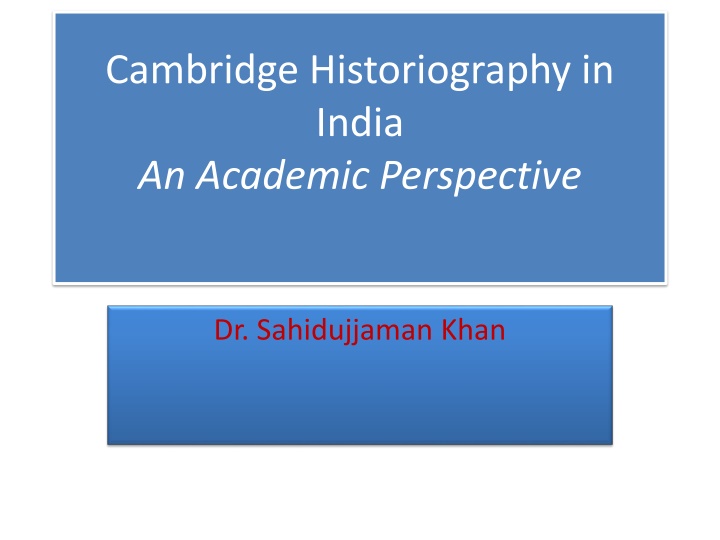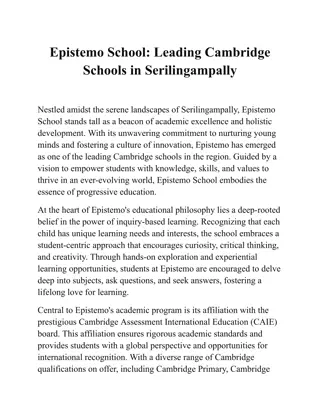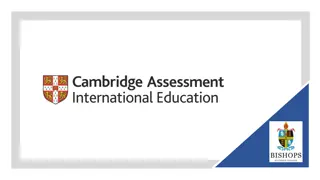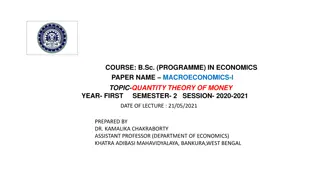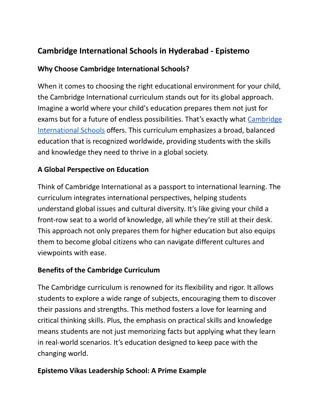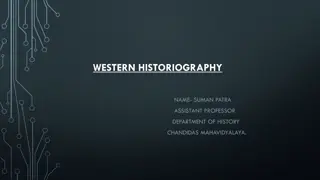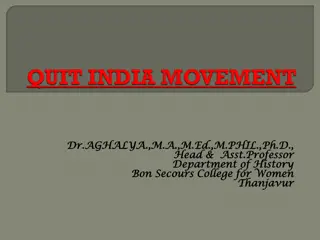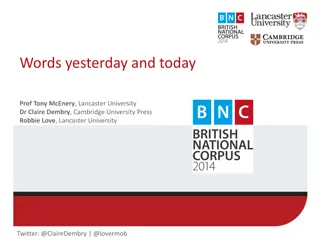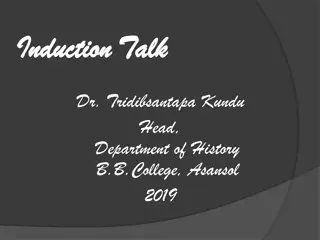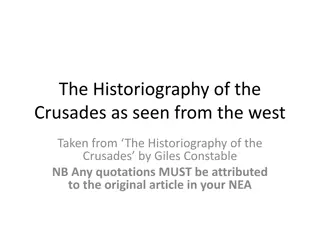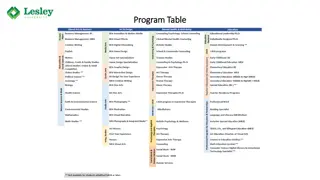Cambridge Historiography in India: An Academic Perspective
Explore how Cambridge Historiography in India, developed at the University of Cambridge, influenced historical scholarship on Indian history. This approach, focusing on various themes like economic, political, and cultural history, faced critiques but left a profound legacy in shaping contemporary historical research on India.
Download Presentation

Please find below an Image/Link to download the presentation.
The content on the website is provided AS IS for your information and personal use only. It may not be sold, licensed, or shared on other websites without obtaining consent from the author.If you encounter any issues during the download, it is possible that the publisher has removed the file from their server.
You are allowed to download the files provided on this website for personal or commercial use, subject to the condition that they are used lawfully. All files are the property of their respective owners.
The content on the website is provided AS IS for your information and personal use only. It may not be sold, licensed, or shared on other websites without obtaining consent from the author.
E N D
Presentation Transcript
Cambridge Historiography in India An Academic Perspective Dr. Sahidujjaman Khan
Introduction to Cambridge Historiography Cambridge Historiography in India refers to an academic approach to the study of Indian history that developed at the University of Cambridge. This approach gained prominence in the mid-20th century and continued to influence historical scholarship on India.
Influence of Scholars Cambridge significantly influenced by a group of notable scholars. Anil Seal, a prominent Cambridge historian, played a crucial role in shaping this approach. His work, such as "The Emergence of Indian Nationalism," focused on the political aspects of Indian history. Other Cambridge scholars, like Peter Marshall and Christopher Bayly, contributed by exploring various facets of India's history, including the socio-economic and cultural dimensions. Historiography in India was
Themes and Approaches Cambridge various themes and approaches. Economic history was a central focus, with scholars investigating the impact of British colonial rule on India's economy, trade, and agriculture. Political history was another vital aspect, examining the development of political institutions, governance, and the emergence of nationalism. Cultural history was explored to understand the dynamics of Indian society, including the interactions between different communities and religious groups. Cambridge historians also investigated India's relations with the British Empire and the wider world. Historiography in India encompassed
Critiques and Debates Cambridge Historiography in India faced several critiques. Some scholars argued that it exhibited Eurocentrism and did indigenous perspectives, perpetuating a colonial viewpoint. There were debates regarding the need for a more balanced approach that integrated the voices and narratives of marginalized communities and subaltern groups. As a response to these critiques, scholars began exploring alternative historical approaches comprehensive and diverse understanding of India's history. not sufficiently thereby consider potentially to represent a more
Legacy and Contemporary Relevance The legacy of Cambridge Historiography in India is profound. It significantly development of historical research on India, including subfields like the history of empire, globalization, and modernity. The methods and research conducted by Cambridge-influenced historians continue contemporary academia, insights into India's development. influenced the to be providing complex relevant in valuable historical
